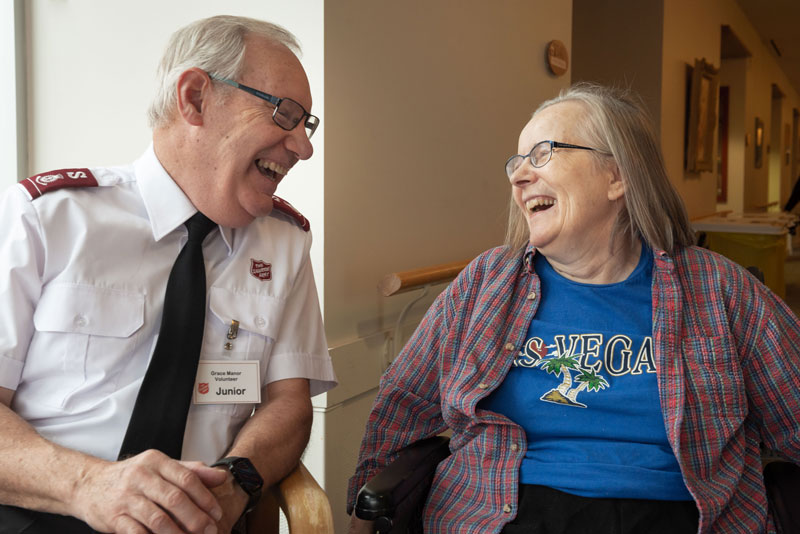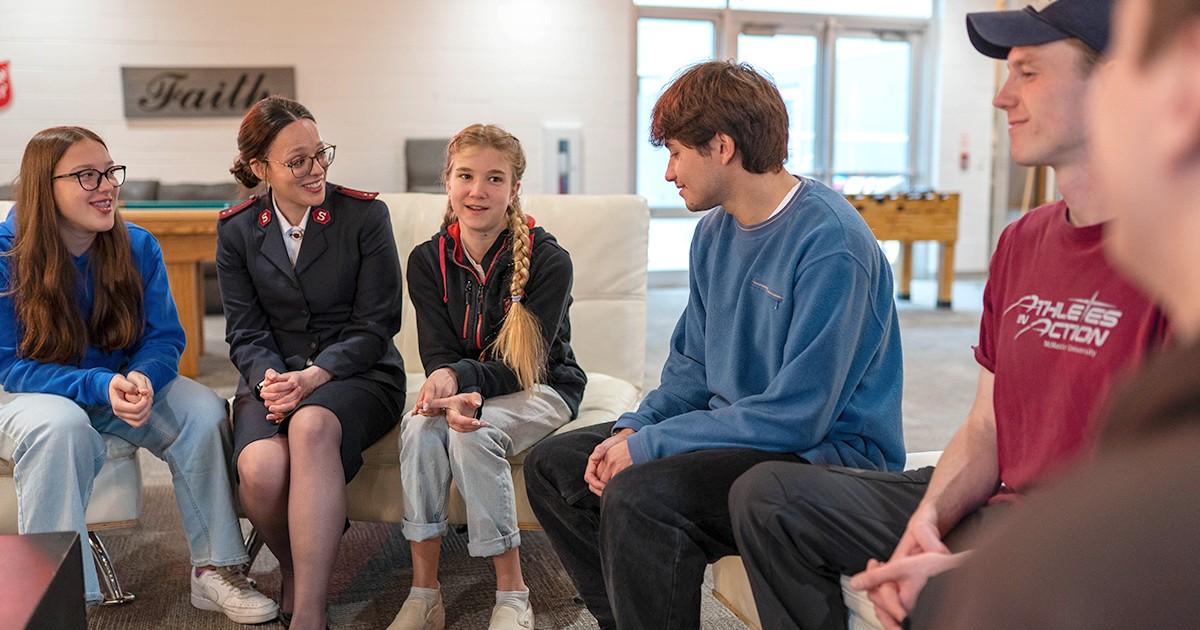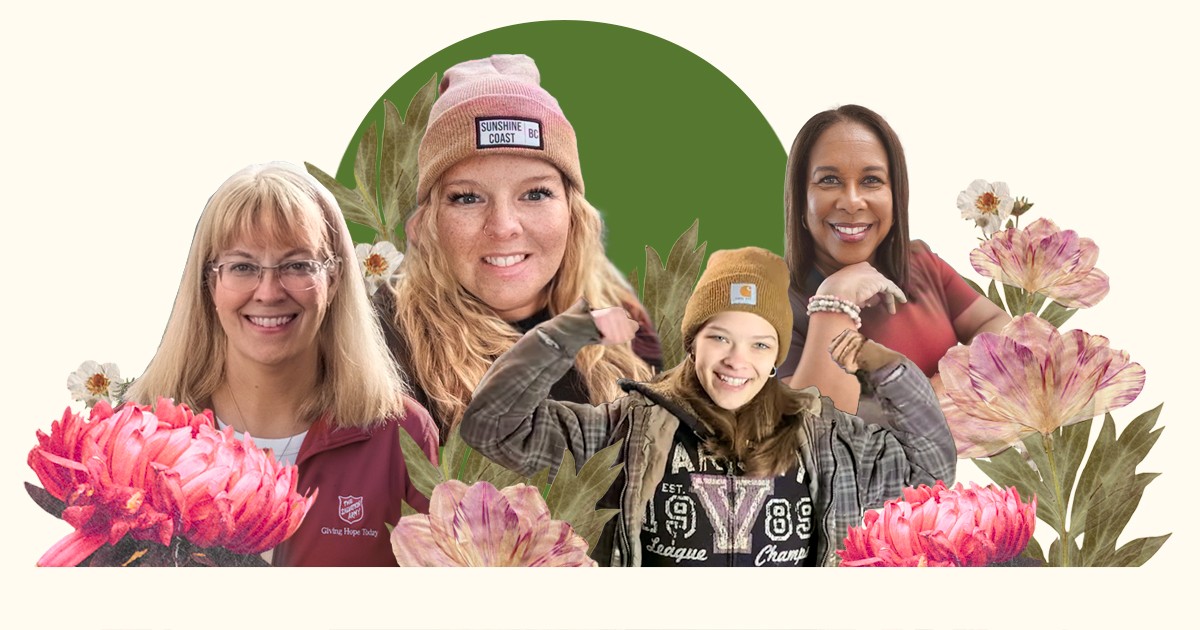The ninth chapter of 2 Samuel tells an often overlooked story. It comes in the wake of a series of military victories that have made King David the dominant force in and around Jerusalem. As is recorded in the previous chapter, David has won a name for himself (see 2 Samuel 8:13).
The story also hearkens back to a covenant David made years before with Jonathan, the son of David’s political enemy, and would-be assassin, Saul. David had befriended Jonathan despite his parentage. The two loved each other as they loved themselves (see 1 Samuel 20:14-17). David promised to treat Jonathan’s household with the kindness of God for as long as he lived (see 2 Samuel 9:3). A better translation of “kindness” is faithful love, the sort lived out through inclusion and protection. David vowed to treat Jonathan’s family as his own.
This was risky business. Saul’s descendants would likely remain a threat to David’s reign. But David and Jonathan could see something in each other that overpowered any lust for power. David shows himself to be capable of embracing God’s large-heartedness and valuing others as much as he valued himself.
Now, at the beginning of the story, both Jonathan and Saul are dead. David is secure in his rule, determined to reign with justice and equity. His first order of business is to make good on his covenant with Jonathan. To whom, he asks his servant, can I show faithful love for Jonathan’s sake?
As it turns out, there is one remaining member of Jonathan’s family: his son. The first thing the servant notes about the man in question is not his name, where he lives or whether he has children. It’s that the man is crippled in his feet. A man in this condition would have held no social currency. He could not have served in an army or become king. He was no threat. It would have been easy for David to do away with him. And no one would have batted an eye if David had simply dismissed the man from his mind, considering him unqualified to represent Jonathan’s family.
But this is not David’s response. David wants to know more. He learns the man’s name: Mephibosheth. And he hears Mephibosheth is being harboured in Lo-debar, a place of no pasture, a barren land.
David arranges to have Mephibosheth brought to him. Mephibosheth arrives, suitably terrified. But David does not diminish him by calling him “crippled man.” Nor does David identify him as “grandson of my enemy.” Instead, he offers a respectful and loving greeting. He calls him by his name: “Mephibosheth!”
Mephibosheth’s response is to fall down before the king. “Who am I?” he asks. “And why would you bring a dead dog like me before you?” These words are so similar to the prayer of David in Psalm 8: “What are human beings that you are mindful of them, mortals that you care for them?” (NRSV).
But David wants the man to rise up. He recalls the words that Jonathan had once used to comfort him while hiding from Saul: “Do not be afraid!” (1 Samuel 23:17).
David continues. “I will show you God’s faithful love because you are Jonathan’s son. I will give you back the land that was meant to be your inheritance. And you, Mephibosheth, will eat at my table always. Not under it, like a dog scavenging crumbs. You are part of my family.”
The story ends with a paired set of observations. First, Mephibosheth lived in Jerusalem, for he always ate at the king’s table. Second, he was lame in both his feet. An interesting conclusion, isn’t it? What do you think the narrator is doing here?
I think he is presenting David as a powerful person who is able to see something in Mephibosheth beyond disability, social and political vulnerability, and personal shame. David’s actions show that he values Mephibosheth not despite his condition or lineage but in accordance with his inherent dignity. He elevates the disparaged grandson of his enemy as a friend, a family member.
David’s actions remind me of God. God calls us by our name and tells us that, whatever we think of ourselves, whatever other people think of us, we belong to God. We are part of God’s household, God’s family.
When God calls us by our name, God calls us to something bigger: a work characterized by faithful love. We are called to recognize the God-given dignity in everyone we meet. We are called to welcome and include those we knowingly or unknowingly exclude from our communities. It is a long call. But sharing God’s faithful love is about turning enemies into family and giving the marginalized a seat at the table.
Aimee Patterson is the Christian ethics consultant at the Ethics Centre in Winnipeg.
This is the first in a series on the Canada and Bermuda Territory’s new core values: dignity, hope, service and stewardship. Visit salvationist.ca/corevalues for more information.
The story also hearkens back to a covenant David made years before with Jonathan, the son of David’s political enemy, and would-be assassin, Saul. David had befriended Jonathan despite his parentage. The two loved each other as they loved themselves (see 1 Samuel 20:14-17). David promised to treat Jonathan’s household with the kindness of God for as long as he lived (see 2 Samuel 9:3). A better translation of “kindness” is faithful love, the sort lived out through inclusion and protection. David vowed to treat Jonathan’s family as his own.
This was risky business. Saul’s descendants would likely remain a threat to David’s reign. But David and Jonathan could see something in each other that overpowered any lust for power. David shows himself to be capable of embracing God’s large-heartedness and valuing others as much as he valued himself.
Now, at the beginning of the story, both Jonathan and Saul are dead. David is secure in his rule, determined to reign with justice and equity. His first order of business is to make good on his covenant with Jonathan. To whom, he asks his servant, can I show faithful love for Jonathan’s sake?
As it turns out, there is one remaining member of Jonathan’s family: his son. The first thing the servant notes about the man in question is not his name, where he lives or whether he has children. It’s that the man is crippled in his feet. A man in this condition would have held no social currency. He could not have served in an army or become king. He was no threat. It would have been easy for David to do away with him. And no one would have batted an eye if David had simply dismissed the man from his mind, considering him unqualified to represent Jonathan’s family.
But this is not David’s response. David wants to know more. He learns the man’s name: Mephibosheth. And he hears Mephibosheth is being harboured in Lo-debar, a place of no pasture, a barren land.
David arranges to have Mephibosheth brought to him. Mephibosheth arrives, suitably terrified. But David does not diminish him by calling him “crippled man.” Nor does David identify him as “grandson of my enemy.” Instead, he offers a respectful and loving greeting. He calls him by his name: “Mephibosheth!”
Mephibosheth’s response is to fall down before the king. “Who am I?” he asks. “And why would you bring a dead dog like me before you?” These words are so similar to the prayer of David in Psalm 8: “What are human beings that you are mindful of them, mortals that you care for them?” (NRSV).
But David wants the man to rise up. He recalls the words that Jonathan had once used to comfort him while hiding from Saul: “Do not be afraid!” (1 Samuel 23:17).
David continues. “I will show you God’s faithful love because you are Jonathan’s son. I will give you back the land that was meant to be your inheritance. And you, Mephibosheth, will eat at my table always. Not under it, like a dog scavenging crumbs. You are part of my family.”
The story ends with a paired set of observations. First, Mephibosheth lived in Jerusalem, for he always ate at the king’s table. Second, he was lame in both his feet. An interesting conclusion, isn’t it? What do you think the narrator is doing here?
I think he is presenting David as a powerful person who is able to see something in Mephibosheth beyond disability, social and political vulnerability, and personal shame. David’s actions show that he values Mephibosheth not despite his condition or lineage but in accordance with his inherent dignity. He elevates the disparaged grandson of his enemy as a friend, a family member.
David’s actions remind me of God. God calls us by our name and tells us that, whatever we think of ourselves, whatever other people think of us, we belong to God. We are part of God’s household, God’s family.
When God calls us by our name, God calls us to something bigger: a work characterized by faithful love. We are called to recognize the God-given dignity in everyone we meet. We are called to welcome and include those we knowingly or unknowingly exclude from our communities. It is a long call. But sharing God’s faithful love is about turning enemies into family and giving the marginalized a seat at the table.
Aimee Patterson is the Christian ethics consultant at the Ethics Centre in Winnipeg.
This is the first in a series on the Canada and Bermuda Territory’s new core values: dignity, hope, service and stewardship. Visit salvationist.ca/corevalues for more information.










Leave a Comment